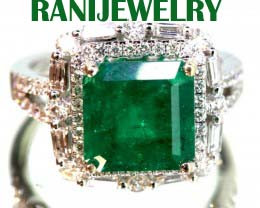4.70 - CTS KESHI PEARL RJA-566
- SKU
- Dimensions (mm)
- 11.000 x 9.000 x 7.000mm
- Weight (cts)
- 4.700
- Colours
-
KESHI PEARL
IT HAS BEAUTIFUL SHADES COLOUR
TREATMENT-NONE
FREE FORM SHAPE
Keshi pearls are quite unique in the way they are formed, when compared to the standard method of pearl formation.
there are two ways that the pearl can form, none of which has to do with the “usual” process as described above. The first way that the keshi pearl can form occurs when the oyster rejects and spits out the substance – the nucleus – before the development of the pearl has had the opportunity to finish. The second possibility is that the nucleus fractures and forms two separate pearl sacs – that is, circles of nacre – neither with a nucleus. Eventually, one or two nucleus-less pearls will usually form. Keshi pearls also come in a variety of different colors and shades, and are known for their luster and uncommon orient. This is a result of their composition consisting of solid nacre. As the nucleus is eventually expelled by the oyster before the pearl is actually formed, the keshi pearl consists entirely of nacre.
Keshi Pearls are natural pearls from the farm environment. irregular in shape priced by weight as opposed to size. The international term keshi means ‘poppy seed’ in Japanese, and is a reference to the small size of these pearls, which are seldom more than a few millimeters in diameter. Keshi pearls are popular because they are made of solid nacre and usually have a bright lustre. irregular shape challenge to jewelry designers most innovative jewelry is made using them.
- SKU
- Dimensions (mm)
- 11.000 x 9.000 x 7.000 mm
- Weight (cts)
- 4.700
- Colours
-
KESHI PEARL
IT HAS BEAUTIFUL SHADES COLOUR
TREATMENT-NONE
FREE FORM SHAPE
Keshi pearls are quite unique in the way they are formed, when compared to the standard method of pearl formation.
there are two ways that the pearl can form, none of which has to do with the “usual” process as described above. The first way that the keshi pearl can form occurs when the oyster rejects and spits out the substance – the nucleus – before the development of the pearl has had the opportunity to finish. The second possibility is that the nucleus fractures and forms two separate pearl sacs – that is, circles of nacre – neither with a nucleus. Eventually, one or two nucleus-less pearls will usually form. Keshi pearls also come in a variety of different colors and shades, and are known for their luster and uncommon orient. This is a result of their composition consisting of solid nacre. As the nucleus is eventually expelled by the oyster before the pearl is actually formed, the keshi pearl consists entirely of nacre.
Keshi Pearls are natural pearls from the farm environment. irregular in shape priced by weight as opposed to size. The international term keshi means ‘poppy seed’ in Japanese, and is a reference to the small size of these pearls, which are seldom more than a few millimeters in diameter. Keshi pearls are popular because they are made of solid nacre and usually have a bright lustre. irregular shape challenge to jewelry designers most innovative jewelry is made using them.
| Shipping provider | Shipping to Australia | Shipping to rest of world |
|---|---|---|
| Standard Shipping - Tracked | $17.00 / 7 days | $30.00 / 14 days |
|
Australia
Standard Shipping - Tracked is discounted to $20.00 on orders with 2 or more items
Rest of the world
Standard Shipping - Tracked is discounted to $30.00 on orders with 2 or more items
|
||
| FedEx | $35.00 / 3 days | $35.00 / 7 days |
|
Australia
FedEx is discounted to $35.00 on orders with 2 or more items
Rest of the world
FedEx is discounted to $35.00 on orders with 2 or more items
|
||

best price offered-purchased direct from source.
-
 Positive
PositiveNice and shiny thanks
-
 Positive
PositiveFantastic thanks
-
 Positive
PositiveGood material thanks
-
 Positive
PositiveWill be fantastic once fully finished
-
 Positive
PositiveNice trio













